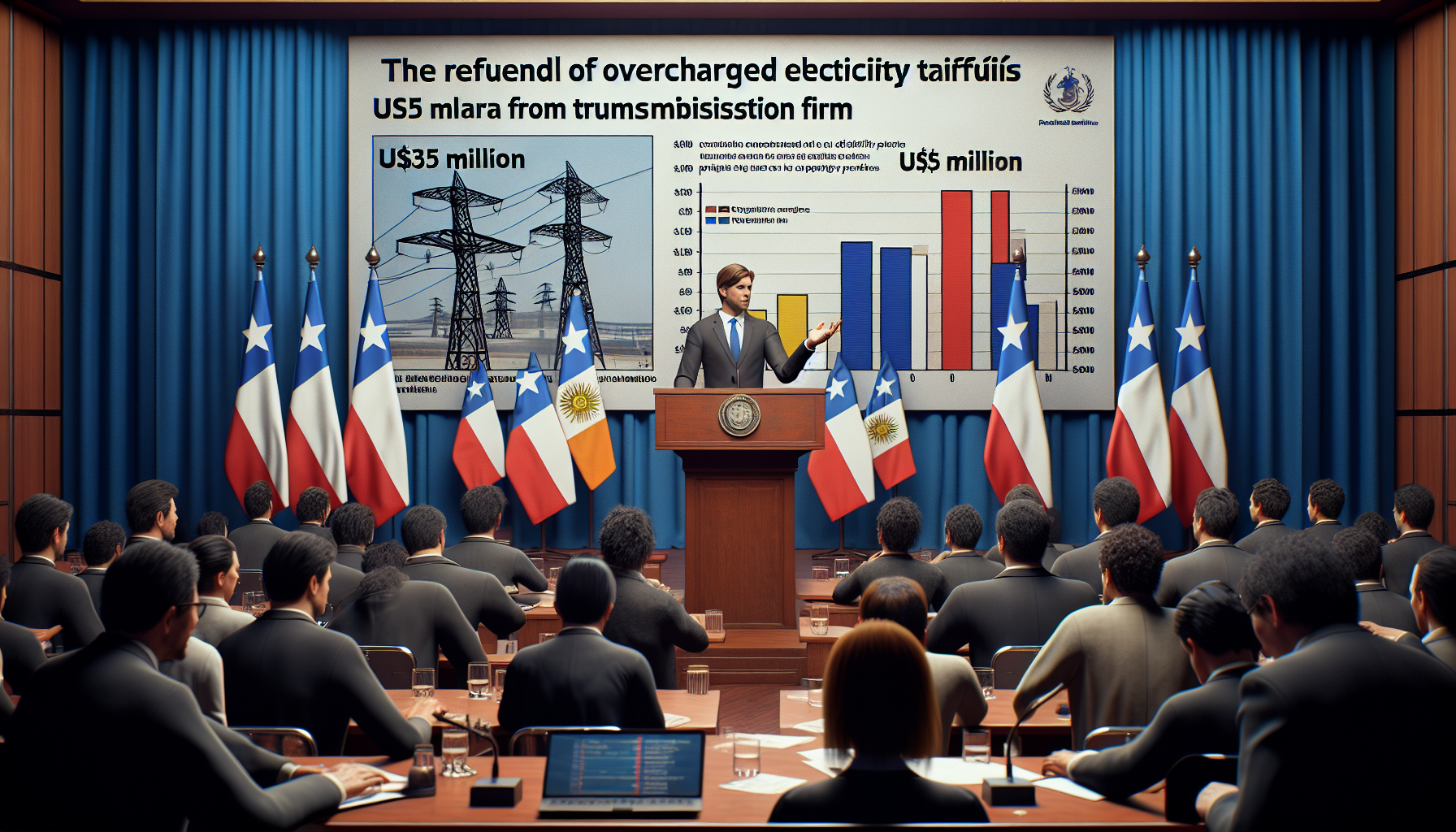Chile's Economy and Energy Biminister Álvaro García announced that Transelec has agreed to refund US$ 135 million overcharged in electricity bills starting in January. This deal adds to the US$ 115 million that generators must return due to calculation errors dating back to 2017. The crisis, which led to Energy Minister Diego Pardow's resignation, highlights failures in government management and the electricity sector.
The controversy over errors in Chile's electricity tariffs has led to significant overcharges for consumers. According to the National Energy Commission, a flaw in the calculation formula since 2017 double-counted the inflation cost, resulting in a US$ 115 million overprice from generators. Additionally, Transelec reported an error in the overvaluation of its assets, initially estimated at US$ 100 million but adjusted to US$ 135 million after review.
Biminister Álvaro García announced that Transelec accepted the agreement to refund these funds starting January 1, 2025. “Transelec has accepted to return all the resources it had overcharged. Therefore, starting next January 1, all bills will reflect a reduction in tariffs as a result of this refund,” García stated in a press conference. The refund will represent an average 1.5% or 2% rebate on bills, in addition to that from the generators' error, totaling at least US$ 250 million.
Transelec's error was notified to authorities at the end of 2024 but not publicly communicated until recently. García stressed that there is no negotiation with generators and that they were informed of the exact amount to return, with an observation period until midnight on the announcement day. If the ongoing audit detects more funds, they will be refunded additionally.
This situation led to the resignation of Energy Minister Diego Pardow, who faced criticism for not reporting the issue timely despite being alerted in September. The executive secretary of the National Energy Commission also stepped down. A report from consultant Valgesta indicates that consumers paid only US$ 2 million directly, with the rest in financial instruments until 2028, though the government insists on full repayment.
The crisis is set against a complex tariff system, worsened by a US$ 6 billion debt to generators after tariff thawing. A letter to the editor in La Tercera, from commercial engineer Varsovia Valenzuela, criticizes the lack of speed in the public and private sectors: “Here, not only the technical entities of the state apparatus that make repeated mistakes have failed, but also the private companies.” The outlet's editorial describes the handling as “erratic,” comparing it to other government crises and warning of political impacts during the election campaign.

